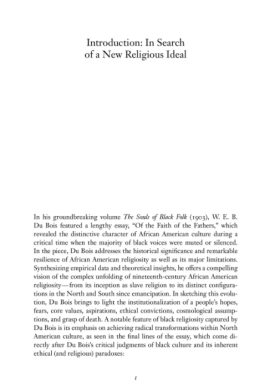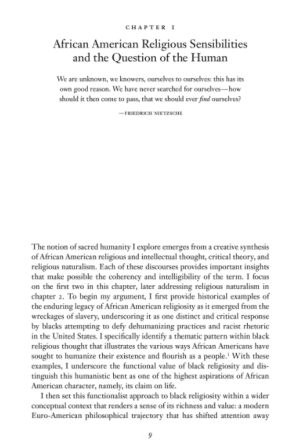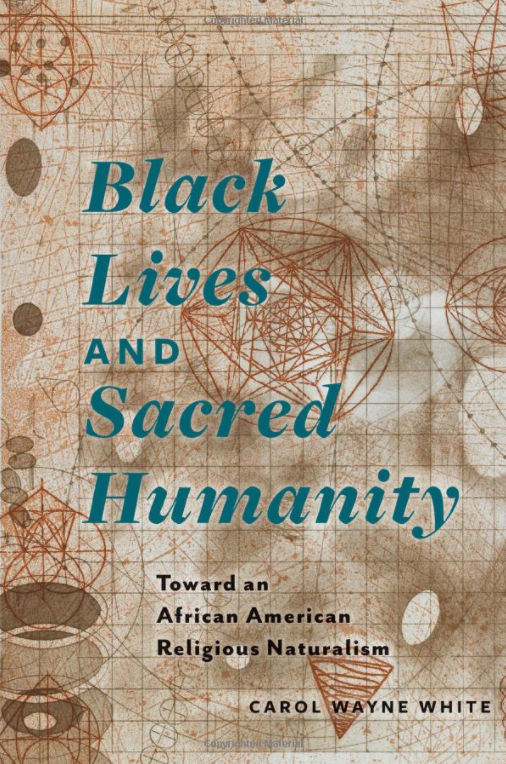Spiritual Naturalists who do not identify as members of a major religious tradition may look to modern Humanism as a strong philosophical framework to support their social justice work. Unfortunately, the difficult legacies of the European Enlightenment – particularly its Euro-centrism, false universalism, essentialism, and dualism – continue to haunt modern Humanism. As a consequence, they can find their goals
undermined by deficient models of humanity, nature/culture (and self/other) dualisms, and a model of “progress” that reinforces the very hierarchies they seek to demolish. At the same time, post-modern critiques of these issues can generate a kind of nihilism that decries all claims about “progress” as mere advancements in one amoral power game or another, leading to a misguided cynicism.
Caught between the trap of a false, “color blind” Euro-centric universalism on the one side, and postmodern cynicism on the other, what is left for those seeking the tools to dismantle oppression and affirm the value of all human (and non-human) lives, especially of those whose value has been historically denied? What can spiritual and religious naturalists do to build a society where “Black lives (truly) matter”?

Carol Wayne White’s Black Lives and Sacred Humanity: Toward an African American Religious Naturalism navigates these waters with the aid of way-pointers from the African American intellectual tradition. White examines their particular struggles to affirm the humanity of black people in the face of constant dehumanization, perpetuated by both racist religious and racist secular humanist models. As part of the broader, liberationist intellectual legacy of African American thought, White showcases a clear naturalist strain exemplified in the writings of Anna Julia Cooper, W.E.B. DuBois, and James Baldwin. This strain, she argues, is critical of supernaturalism, but emerges out of the same set of historical experiences as African American liberation theologies. It shares the same “propensity toward life that is inextricably connected to affirming and establishing blacks’ full humanity in a vexed, race-driven cultural context that has generated dehumanizing forces and structures on many levels.”
Out of a struggle to affirm their own humanity in the face of the crushing forces of dehumanization, the culture of African American religious thought “compels us to question the notion of the human that is implicitly affirmed in humanistic reasoning.” African American critiques of Euro-centric Enlightenment humanism, joined with the prophetic hope of a people working for justice, point beyond “the hubris and naivety of Euro-American humanistic thinking,” to a more capacious vision of what White calls “sacred humanity” – a relational, interdependent, communal model of humanness that emphasizes its embeddedness within complex relational webs.
Drawn from this long legacy, White’s concept of sacred humanity celebrates the “qualitative dimensions of experience” – i.e., the religious, interpretive, and creative aspects of human life – as natural human expressions which open up novel possibilities for human flourishing. The Religious or Spiritual Naturalist and Humanist answers the question, “What does it mean to say I am human?” by probing the depths of our current scientific knowledge about ourselves – especially in light of our place in the story of evolution – and by reaching out across our rich, complex entanglements with all kinds of others. The individual, in this view, is co-created through relations with others, not in spite of them. Developing our sacred humanity must include a celebration of this deep relationship between self and other, especially as it leads to the emergence of an interdependent and justice-seeking community.
What emerges is genuine optimism about the potential for human social “progress” that is, at the same time, honest about the realities of pain, tragedy, finitude, power, and the systemic barriers currently preventing collective flourishing. The great gift of the African American intellectual tradition is an openness to, and honest search for, visions of possibility – an emancipatory spirit that motivates us to “claim and become our humanity in seeking and finding community with others – and with otherness.”
White’s religious/Spiritual Naturalism is progressive, hopeful, and pragmatic. White is faithful to the legacy of Cooper, DuBois, and Baldwin, and to all those who could not respond to racist dehumanization either with resolute quietism or with bitter acceptance. The future is constrained by currently existing systems of injustice, but for White and her interlocutors, it is by no means closed. Visions of possibility become real sources of hope when we continue to engage with one another across differences, and embrace “a mode of valuing that simultaneously remains open to the mystery of existence and increasingly critiques those forms of social relations, cultural formations, and ideational systems that would deny others and us a basic dignified existence.” But hoped-for futures are by no means guaranteed or promised. The possibilities for a more just future must be built not only through theorizing, but also through direct confrontation with unjust social structures and dehumanizing forces. The concept of sacred humanity lifts up all of the spiritual and religious resources living in the heart of human dreamers, especially our creative and visionary capacities. Sacred humanity calls us to the task of thinking, valuing, and living out “expanded configurations of relationality – of new worlds…” that include, empower, and celebrate all our relations.
Black Lives and Sacred Humanity is an accessible introduction to Religious or Spiritual Naturalism as a philosophical stance. Its critiques of Enlightenment humanism shed light on how even the most well-intentioned emancipatory goals may be undermined by a failure to critique invisible structures of hierarchy, normality, and privilege within one’s own context. But White’s vision of sacred humanity pushes beyond these necessary exposures of the Enlightenment’s racialized undercurrent, to a more critical, nuanced, and colorful humanism. Rather than critique or diminish religiosity and spirituality, White reweaves the spiritual impulse into a capacious picture of humanness, framed by the evolutionary story and our scientific knowledge, but textured with the creative emergence of human dreaming, longing, striving, creating, and hoping. Joined together, White’s naturalism and emancipatory humanism inspire hope for a more just future, and catalyze the energy to make it happen. This book is an important philosophical and spiritual resource for all those currently working towards those ends, especially for who do so outside the frameworks of specific traditions.
A portion of your purchase with this Amazon link will be donated to SNS’ mission:
https://www.amazon.com/Black-Lives-Sacred-Humanity-Naturalism/dp/0823269825/ref=as_sl_pc_tf_til?tag=spirinatursoc-20&linkCode=w00&linkId=db4ef6f53301f78f25303e677dfafbc2&creativeASIN=0823269825
This was originally published on the SNS page.
Emile’s blog is here.
 Amelia “Émile” Wayne has studied the intersections of religion, history, and culture for eight years, and has spent the last two years teaching undergraduates in various Humanities courses as an adjunct professor. Émile’s personal spiritual quest flowed along lines of inquiry laid out by research, and eventually led them to seek out a form of religion which could counterbalance Émile’s tendency toward intellectual abstraction through a radical affirmation of lived experience. It was through participating in Ár nDraíocht Féin (ADF) style rituals that Émile came to embrace Paganism. Émile will be pursuing a PhD in Philosophy and Theology at Drew University in New Jersey from 2016-2019. Their goal is to construct a naturalistic pagan philosophy which engages Queer Theory, Process Philosophy, and Ecstatic Naturalism, while remaining firmly rooted in actual soil and actual lives. While not studying or teaching, Emile enjoys horseback riding, mystery dramas, and craft beer.
Amelia “Émile” Wayne has studied the intersections of religion, history, and culture for eight years, and has spent the last two years teaching undergraduates in various Humanities courses as an adjunct professor. Émile’s personal spiritual quest flowed along lines of inquiry laid out by research, and eventually led them to seek out a form of religion which could counterbalance Émile’s tendency toward intellectual abstraction through a radical affirmation of lived experience. It was through participating in Ár nDraíocht Féin (ADF) style rituals that Émile came to embrace Paganism. Émile will be pursuing a PhD in Philosophy and Theology at Drew University in New Jersey from 2016-2019. Their goal is to construct a naturalistic pagan philosophy which engages Queer Theory, Process Philosophy, and Ecstatic Naturalism, while remaining firmly rooted in actual soil and actual lives. While not studying or teaching, Emile enjoys horseback riding, mystery dramas, and craft beer.
Read Emile’s previous posts here.
Editor’s note: This book review is especially timely after the President Trump’s attacks on NFL players who protest the state of racial discrimination in the United States, as well as Charlottesville, and more.
 Naturalistic Paganism
Naturalistic Paganism


Thanks for posting this review! I purchased this book for the office library (I work at a religiously-affiliated HBCU) but haven’t gotten a chance to read it yet.
I hope you enjoy it as much as I did. As you can tell, it’s not long, and the language is pretty accessible.